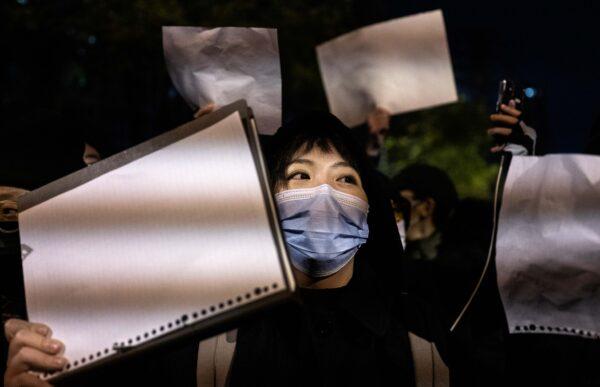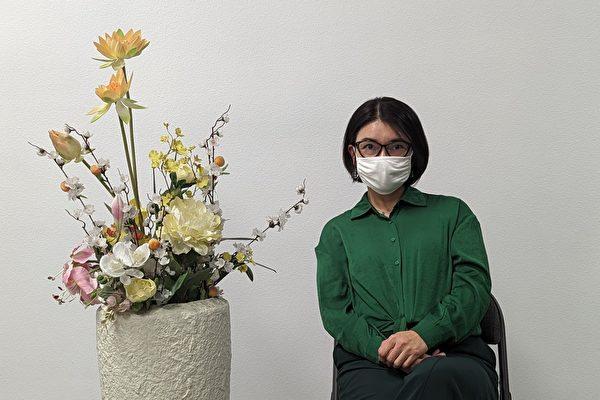A frequent flier between Beijing and Los Angeles put herself in the center of the White Paper Revolution last November—a movement in which protesters across China expressed their dissatisfaction with the communist regime’s Zero-COVID policies and its draconian controls on expression.
Caught Up in Zero-COVID
Shi runs her own business, having previously worked for an international company in Beijing for many years. She was also once a student in the United States.In 2022, she was trapped in Beijing during the city’s lockdown.
At the time, Beijing’s residents were faced with a dire situation: No outings, no regular activities, restrictions on work—but still the pressures of mortgage payments, bank loans, household bills, and personal business continued.
Once-sweet homes became jails for everyone. From time to time, there messages leaked onto Chinese social media: Many isolated and depressed people were committing suicide.
Trapped at home, her only news source was the state media, CCTV, which boasted about that year’s harvest and touted the success of the regime’s policies. Meanwhile, the Chinese economy was actually regressing from the lockdown policies. She said the TV propaganda was “an insult, spiritually and artistically; this humiliation caused my greatest anger.”
The Spontaneous Activist
An apartment fire in Urumqi city, Xinjiang province on Nov. 24, 2022 shocked the entire nation. Unable to escape, at least 10 residents were killed by a fire that broke out in a sealed apartment. Protests erupted throughout the nation against China’s draconian Zero-COVID policy, and were echoed and supported by overseas Chinese.Local traffic was heavy, and a traffic jam ensued. Angry drivers’ honks filled the air. Shi believes that most of the vehicles were on their way to the protest site. The roads remained blocked, however.
Shi and her friend decided to park the car and walk to the protest site. It was after 11 p.m., and protesters were being confronted by the police. Shi found herself right at the center of the protest.
When it was past midnight, more police seemed to arrive, though she couldn’t see the full extent of their formations.

A few men talked to the crowd and led the people in chanting slogans.
“Everyone was emotional, including me. We all joined in on the spur of the moment,” she said. She believes that no one planned the vocal demonstration, and that it happened spontaneously.
The police surrounded the protesters, who were pushed, shoved, and divided into small groups. As the protesters were surrounded and compressed, many people took the chance to leave. At this time, Shi believes that about one-third of the protesters were still at the scene. She almost fell during the pushing and shoving: Her phone fell to the ground, and the screen shattered.
Protesters continued to chant slogans while retreating. Shi and her friend managed to get back to their car and return home.
Shi left Beijing a few days later to visit her daughter in the United States. Soon, however, her family in Beijing received a phone call from the local police—demanding their constant reports of Shi’s whereabouts.
Retaliation
After the nationwide White Paper Movement, as expected, the regime retaliated against participants, and at least 100 of them are believed to have been arrested.Knowing that she’d be faced with arrest if she returns to China, Shi said she does not regret what she did that evening.
“The CCP’s Zero-COVID policy showed that the regime has no will or capability to correct its own mistakes, until you protest against it,” she said.
The lack of freedom of expression was the cause of the CCP’s incompetence and its inability to correct its mistakes, Shi said. “How would they know what you’re thinking if you are not allowed to speak?”
The brutal and extreme Zero-COVID policy made her realize the significance of free speech to human dignity, she said.
Standing up for her own dignity was “the most important decision of my life,” she said, and helped her to conquer her fear.
A government is to serve the people, not rule them, Shi said. “Restricting their freedom and suppressing the people—that’s not what a government is for.”




